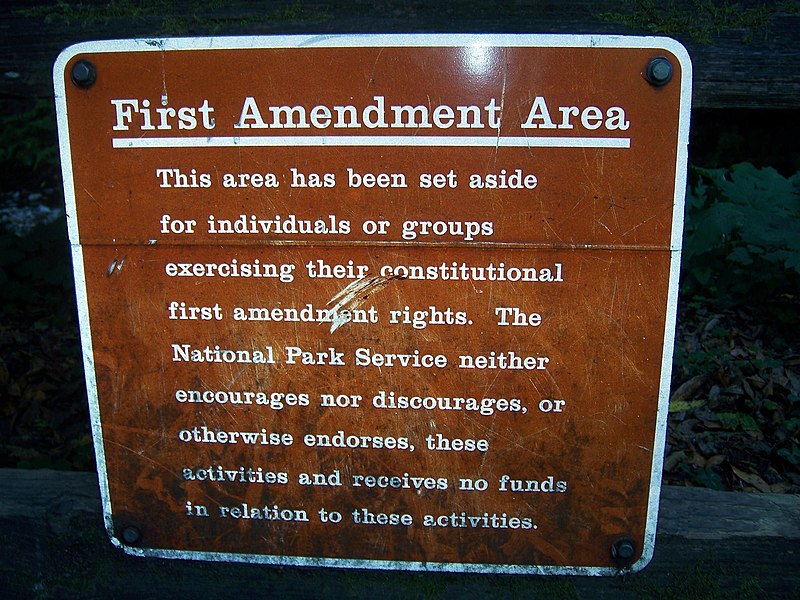Here's an inalienable right for you: the right to informed citizenship.
Citizenship, the informed kind, has two distinct angles to it. The first is the personal: We, all of us, have an absolutely inalienable right to the information that allows us to act in a civic and socially responsible way, and Congress shall make no law prohibiting the free exercise thereof. The second is the social: We, all of us, have an absolutely inalienable right to live in a society populated by informed citizens. We have a right to live among an informed citizenry, and any policy, law, or practice that restricts this right exists in opposition to a free and functional democracy.
In America, we embrace the right to informed citizenship; or, more accurately, we shout our support of informed citizenship up to the very rafters. Then we give Big Business a million incendiary devices to burn down that house.
There are explosives, like the recent SCOTUS decision knocking down campaign finance laws and giving corporate lobbyists unfettered access to our legislative and executive branches (and, by extension, the judicial branch as well).
Then there's the kindling, the petrol, the oxygen that keeps the fire blazing. Among the most powerful of these is the news paywall, which sequesters off information to which citizens have an absolute right. In theory, paywalls are no different from their precursors, subscription fees and newsstand prices. But two things have changed--our model of citizenship, and our access to circulated information--since those pre-internet days.
For example: In 1990-1991, during the first Gulf War, news was circulated fairly evenly across multiple platforms. An American who didn't want to pay for a newspaper could still gather information through television and radio. She could walk into a library and read the news for free. Certainly this wasn't a utopian ideal of a free press on every street corner, but the news that enabled a citizen to act was available through multiple outlets.
Today, the speed and reach of internet news sources make them by far the dominant news circulation platform. Indeed, the speed and reach of internet news are part of why a new model of citizenship is emerging. If there was ever a time when it was possible to measure civic engagement by looking at voter turnout on Election Day, that time is long past. Today's civically engaged citizen is the one who is aware of Facebook's abominable approach to privacy and has made decisions about how (or whether) to use Facebook as a result of this knowledge. Today's informed citizen may not know how many electoral votes are needed for a candidate to win the presidency, but she knows how to find that information when necessary. She votes on Election Day, sure, but she also votes with her feet and her eyeballs and her fingertips, constantly making informed decisions about how to parcel out her energy and time, when to dance along with corporate and political influences and when to resist, when to leave the dance floor entirely.
Paywalls make it harder for an informed citizen to stay informed, which in turn restricts my right to live among an informed citizenry. It shouldn't be a surprise to anyone that the news that sticks is the news that spreads--via blogs, social networking sites like Facebook and Twitter, and news aggregating sites like Boingboing. News that's stuck behind a paywall is news that can't spread and is therefore news that dies.
And that's not all: I believe that news paywalls are likely to have long-term effects on citizenship, as well, since I agree with James Seddon's point in his recent Wired article that young people who grow up without unfettered access to local news are likely to grow up without a sense of social and civic connection to their communities.
I recognize that the current business model for print journalism isn't working. I recognize that newspapers need to do something if they want to try to save their jobs. But in America, the eight-year reign of Baby Bush notwithstanding, we don't let business interests trump fundamental human rights.
I'm rooting for newspapers, I really am. I hope they survive this challenge. But news paywalls are in direct opposition to our fundamental right to informed citizenship, and my message to the print media folks is this: Find another way.
Tuesday, June 1, 2010
Subscribe to:
Post Comments (Atom)








No comments:
Post a Comment